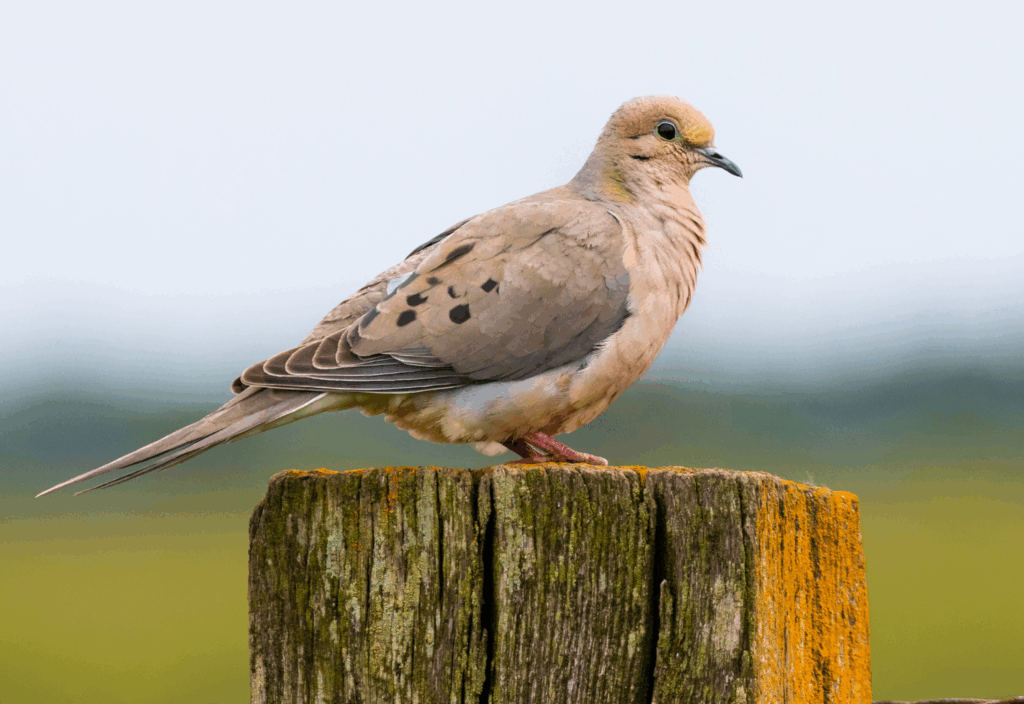
Dove hunting is a great way for Pennsylvania hunters to spend some time in the field this fall. Whether you are a resident or a nonresident, knowing the exact requirements for a Pennsylvania Dove licenses and regulations ensures a legal and enjoyable hunting experience. In this article, we’ll talk about what you need to know about licenses, permits, education, and regulations.
To hunt Dove in Pennsylvania, you’ll need a valid hunting license issued by the Pennsylvania Game Commission. Both residents and nonresidents are required to have a hunting license to legally pursue doves within the state.
You’ll also need a Pennsylvania Migratory Bird License and your HIP registration. Hunters must comply with all migratory bird regulations as doves are considered migratory game birds.
Hunter education is mandatory for most individuals before purchasing a hunting license. This ensures that all hunters understand safety protocols and state regulations.
Hunters must register with the Harvest Information Program (HIP) before hunting migratory game birds, including doves.
The HIP registration is a federal requirement designed to collect data on migratory bird harvests and is mandatory for all hunters pursuing doves in Pennsylvania.
The Dove hunting season in Pennsylvania typically runs from early September through mid-October. These dates can vary slightly each year based on regulatory adjustments made by the Pennsylvania Game Commission.
Generally, the season is uniform across the state without differentiation by method of take or specific zones, but always verify any updates or special regulations that may apply to your hunting area.
For official season dates and updates, visit the Pennsylvania Game Commission’s migratory bird hunting page.
Daily bag limits for dove hunting in Pennsylvania are established to promote sustainable harvests and conservation. The daily bag limit for mourning doves is typically set at 15 birds per hunter per day.
Hunters must adhere to legal hunting methods, which include the use of shotguns with appropriate shot sizes for migratory bird hunting. The use of lead shot is prohibited for dove hunting to protect waterfowl habitats and comply with federal regulations.
Other important legal considerations include hunting only during designated season dates, respecting private property rights, and following all state and federal migratory bird hunting laws.
Dove hunting opportunities in Pennsylvania are available on various public lands, including State Game Lands and other public lands managed by the Pennsylvania Game Commission. These areas provide accessible hunting grounds with established rules and regulations to ensure fair and safe hunting experiences.
Hunters may also pursue doves on private lands, but it is essential to obtain explicit permission from landowners before hunting.
The Pennsylvania Game Commission offers detailed maps and tools to help hunters locate public lands open to dove hunting. These resources are invaluable for planning your hunt and ensuring compliance with land use regulations.
To explore public hunting lands and access maps, visit the Pennsylvania Game Commission’s public land hunting resources online.
Hunter education is a prerequisite for most individuals seeking to purchase a hunting license in Pennsylvania. The Pennsylvania Hunter-Trapper Education course covers essential topics such as firearm safety, wildlife conservation, and ethical hunting practices.
Completion of this course is mandatory for hunters born after January 1, 1960, before they can legally obtain a hunting license.
For more information on hunter education requirements and to find approved courses, visit https://recademics.com/hunting/Pennsylvania.
You can purchase your Pennsylvania hunting license for Dove through the Pennsylvania Game Commission’s official website or authorized license agents throughout the state.
The process is straightforward and offers both online and in-person options to accommodate all hunters.
To buy online, visit the Pennsylvania Game Commission’s licensing portal, create an account, and follow the prompts to select the appropriate hunting license and any required registrations such as HIP.
In-person purchases can be made at sporting goods stores, county treasurer offices, or other licensed vendors.
For detailed step-by-step instructions and additional guidance, refer to the comprehensive guide at https://recademics.com/blog/hunting/how-to-get-a-hunting-license-in-Pennsylvania/.
Yes, in addition to a valid Pennsylvania hunting license and HIP registration, hunters are required to carry a Pennsylvania Migratory Game Bird License.
Yes, nonresidents can hunt dove but must purchase a nonresident hunting license, Pennsylvania Migratory Game Bird License, and HIP registration.
Hunter education is required for most hunters born after January 1, 1960, before purchasing a license. Exceptions exist for supervised youth hunters.
Official season dates are published annually by the Pennsylvania Game Commission on their website and should be checked before hunting.
The daily bag limit is generally 15 mourning doves per hunter per day, but always verify current limits with the Pennsylvania Game Commission.
This is a FREE Boating course.